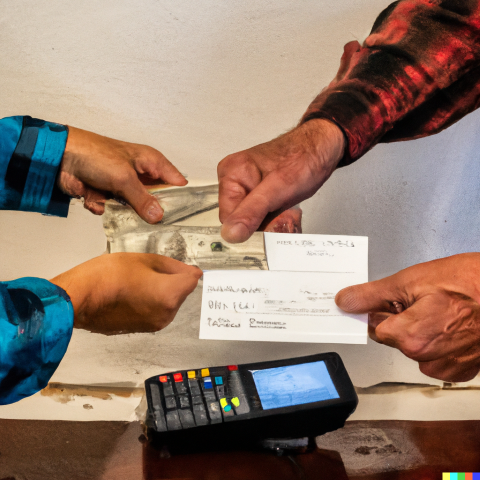Advanced Fee Fraud

Also known as 419 scam or Nigerian scam, Advanced Fee Fraud is a type of financial scam where fraudsters promise the victim a significant sum of money or benefits in exchange for a small advance fee or payment. The scammers typically claim that the victim has won a lottery, inherited a fortune, or is eligible for a lucrative business opportunity. However, once the victim pays the upfront fee, the promised funds or benefits never materialize, and the scammer disappears with the money. Victims can lose significant money to scammers who exploit their trust. Falling for such scams can cause emotional distress and embarrassment. Scammers may also attempt to gather personal and financial information, putting victims at risk of identity theft.
Signs of this Scam
- Unrealistic Promises: Be wary of unsolicited offers that promise large sums of money in exchange for a small upfront fee.
- Poor Grammar and Spelling: Many scam emails contain noticeable grammar and spelling mistakes.
- Generic Greetings: Scammers often use generic greetings like "Dear Sir/Madam" instead of addressing recipients by name.
- Email Address: Check the sender's email address for unusual or suspicious domain names.
- Verify Information: Independently verify the offer's legitimacy through official channels before making any payments.
Prevention Tips
- Be Skeptical: Exercise caution when receiving unsolicited emails or messages with too-good-to-be-true offers.
- Verify Contacts: Always verify the sender's identity, especially if they claim to represent a legitimate organization. Consult that organization's website or published information, not the message from the sender.
- Ignore Requests: Do not respond to or engage with suspicious messages. Delete or report them.
- Educate Yourself: Educate yourself and others about the common tactics used in advance fee fraud.
- Use Email Filters: Implement strong email filters to help detect and block scam emails.
- See Cyber Crime Prevention for more information about how to protect yourself online.
Recovering from the scam
- Report the Scam: Report the scam to your local authorities and the appropriate online fraud reporting agencies.
- Contact Your Bank: If you've sent money, contact your bank immediately to report the fraudulent transaction.
- Monitor Your Accounts: Regularly monitor your financial accounts for unusual activity.
- Change Passwords: If you shared any personal information, change your passwords and consider enabling two-factor authentication. See Cyber Crime Prevention for more about this.
- Seek Legal Help: Consult with legal professionals if you believe you've been a victim of advance fee fraud.
References:
- Federal Trade Commission. (2022 July). What To Know About Advance-Fee Loans. Retrieved from https://www.identitytheft.gov/.
- US Postal Inspection Service. (2022 October 6). Advance-Fee Loan Scams. Retrieved from https://www.uspis.gov/news/scam-article/advance-fee-loan-scams.

